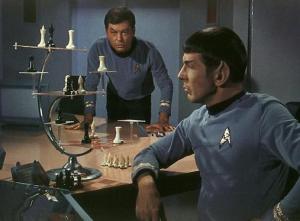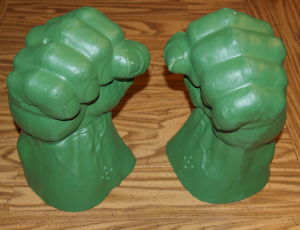Okay, if you can think that far ahead, maybe you should apply to MENSA and quit your job at “Harry’s I Can’t Believe It’s Not Chicken” fast food restaurant.
What separates the great chess players from the novice chess players? Is it knowing all sorts of chess openings? Is it by playing aggressively? Is it by bribing your opponent a hundred bucks before the match? Do you have to be Vulcan? No, no, no, and no.
In my experience, the better chess player is the one who makes the least amount of mistakes. What qualifies as a mistake?
1) Allowing your opponent to freely take a piece without you gaining the upper hand in some fashion.
2) Allowing your opponent to freely get into a better position than you.
3) Allowing your opponent to intimidate you with his “Guns Don’t Kill People, I Do” shirt or allowing her to distract you with a low-cut blouse.
Those that are able to play without making mistakes and have the ability to think ahead many moves down the line usually win their games. How do you train yourself to do this, you ask?
Before you make your move, you have to ask yourself, if I move this piece here, can it be taken? Once you are able to master thinking one step ahead, you can begin working on thinking many moves ahead.
Chess isn’t a game where you are just facing an opponent. In chess, you are also playing with yourself. I’ll wait for the snorting and the seventh grade caveman laughter to die down. Now then…in chess, you’re playing against your opponent and yourself. The masters are able to play both sides of the board based on the current position. Being able to come up with strategies against your own defenses will help you prepare for what your opponent may do and allow you to plug any gaps you see before your opponent reacts.
I wouldn’t worry too much; when you’re just beginning to play you aren’t expected to think beyond your current move. You’re there to have fun remember? Should you be playing against your lifelong nemesis or that annoying guy in accounting you’ve wanted to pummel with your fists for weeks however, you’ll want to keep “thinking in their shoes” in mind as you’re playing. What would YOU do in their position and what can YOU do to stop that from happening?
The minute you can think in this mindset is the minute you’ll be one step closer to playing like the pros.
—



